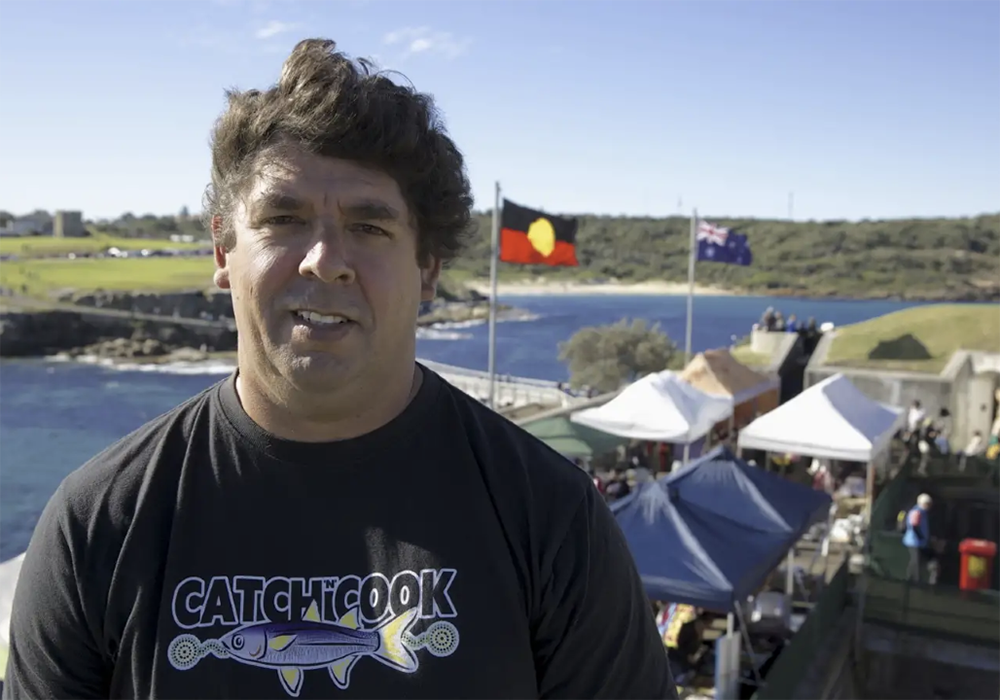Peter Cooley: CSI's first indigenous graduate of the Graduate Certificate in Social Impact


Peter Cooley, CEO of First Hand Solutions Aboriginal Corporation, was the first Indigenous graduate of the Graduate Certificate in Social Impact at the Centre for Social Impact UNSW.
I was already working in social programs and social business back in 2014 when I went to an event at UNSW and Cheryl Kernot was a guest speaker. At the time I was looking at what structure would best enable our business hub/incubator Blak Markets, and when Cheryl started talking about social enterprise I thought, “That’s it, that’s what we’ve been searching for! I enrolled in the course the next year, with the support of a scholarship.
The Graduate Certificate in Social Impact looked at things like social impact, social enterprise, impact investing, philanthropy and leadership – really covering different areas I needed to consider at the time to run and scale an effective organisation for Aboriginal people and communities.
It was an eye opener to understand on a global scale how social entrepreneurs are developing solutions to complex issues, and to scale this down to a local community level. It gave me a real understanding of the way the future is heading in the not-for-profit space with funding and outcomes-based work, and invaluable skills to better demonstrate impact – which can be scary thing for charities!
We’ve since developed a couple of different business models – with Blak Markets now a social business incubator hub providing a real life marketplace for NSW-based Aboriginal arts and culture businesses to come in at any stage, even to test new products. Blak Markets has now been running for five years and is a really strong brand and business model because I did a lot of travelling to investigate businesses that failed in the arts and tourism space and built in responses in our business model.
Out of this has grown the annualNational Indigenous Art Fair supporting Indigenous artists and art centres from all over Australia. We’ve just held our third Fair, which generated $500k+ income in 2 days for the 30 remote art centres and 35 remote artists who participated, plus they negotiated commissions and sales after the Fair.
Then there’s IndigiGrow – our new social enterprise focused on native bushfoods and critically endangered plant communities. We’re providing education programs, plant production at our La Perouse nursery and a distribution hub offering opportunities for growers to supply markets. Our business model looks to inspire communities across Australia to get involved in bushfoods. IndigiGrow generates income to invest back into our youth programs. We now have two Aboriginal horticulturalists and two school-based employees on an apprenticeship and traineeship.
It would be hard to imagine me doing a lot of this without the knowledge from that course. I’m able to articulate the impact of what we’re doing much better - I couldn’t do that before. I’m able to explain how we’re strengthening young people by providing cultural links and employment, now it just rolls off.
The ‘Impact Investing and Philanthropy’ subject was really important because it taught me of need to build these relationships and because I’m now able to demonstrate impact, we’re getting quite a bit of support from philanthropy, government funding, and corporate sponsorship and volunteering groups. I used my ‘Field Subject’ to explore the challenges we’d already conquered, and areas we needed to work through. The ‘Leadership for Social Impact’ subject really helped me develop as leader by looking at myself and at other leaders. It was inspiring, I took a lot out of that. I’ve become a stronger leader.
I’d recommend the Graduate Certificate to anyone who wants to do good, whether you’re a socially-minded person working for a big company or running your own business. It helps to open your eyes, to find out a lot about yourself, about the complex issues we’re faced with and how people are coming up with solutions, as well where things are heading with funding and philanthropy.
One of my board colleagues is an executive for one of the biggest businesses in the country – he did the the course too and is now changing the way this corporate does things socially. It really gives skills on how you can change the whole social outlook of an organisation from a corporate governance and a community perspective.”
